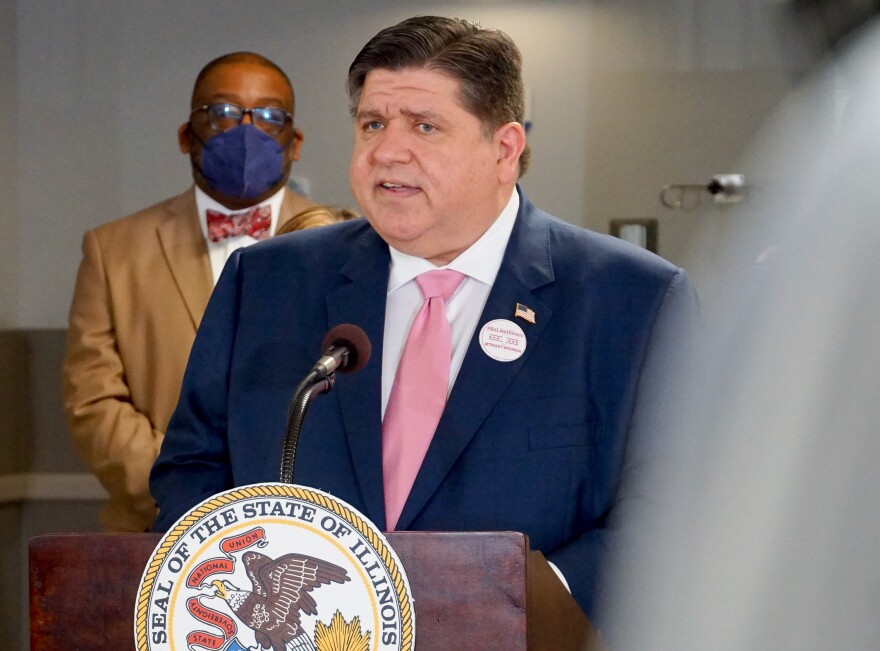Illinois will continue to be a haven for those seeking abortions as other states restrict access to the procedure after the U.S. Supreme Court's expected ruling overturning Roe v. Wade, Gov. J.B. Pritzker said.
Pritzker and other state officials visited Planned Parenthood in Fairview Heights on Wednesday to announce they want to expand abortion services. Illinois would protect the right to an abortion, he assured patients.
“Since 2015, the number of out-of-state patients coming to Illinois to make their own decisions about whether, where and how to be a parent has tripled, and without action from Congress it’s set to soar,” he said. “Let me be clear on this: Illinois is a pro-choice state, and as long as I’m governor and we retain a pro-choice legislature, we will support every woman’s right to reproductive freedom.”
Pritzker’s message comes a week after Politico published a draft majority opinion by the Supreme Court that would overturn Roe v. Wade, the 1973 ruling that legalized abortion. The court’s official decision could come later this year.
Missouri, Kentucky and other nearby states have laws that would prohibit the procedure as soon as judges rule against the 1973 decision. The state is an island of access, surrounded by states where Republican legislatures have for years been restricting who and how a person can obtain an abortion, Pritzker said.
Close to three-quarters of the patients at the Fairview Heights clinic are from out of state, Pritzker said. Patients come from as far away as Texas, where a new law allows private citizens to take legal action against those who aid anyone seeking an abortion.
Pritzker expects tens of thousands more new patients to come to Illinois from other states each year if the Supreme Court formally overturns Roe v. Wade, which would allow state legislatures to pass individual abortion bans.
That translates to a predicted 14,000 new patients coming to Planned Parenthood’s Metro East location, said Yamelsie Rodriguez, president of Planned Parenthood of the St. Louis Region and Southwest Missouri.
“In Illinois, we have been preparing for the day Roe falls, and we are ready,” she said.
Rodriguez and Pritzker urged U.S. senators to pass the Women's Health Protection Act, a bill sponsored by Democrats that would codify the right to an abortion nationwide. Senators are scheduled to vote on the bill today, but analysts say it’s unlikely to pass, as Democrats do not have the votes.
Pritzker also called for state regulators to allow nurse practitioners to perform abortions, which he said would help with the inevitable backlog of patients coming to the state in the future.
“We need reproductive services of all sorts available to women,” he said. “And more available now, because we no doubt are going to see many more women who are seeking a place of refuge to exercise their rights.”
Abortion-rights advocates have been planning for the day Roe v. Wade would be overturned for years, Rodriguez said.
To prepare, Planned Parenthood has opened a call center in the Metro East to assist patients coming to Illinois and connect them to the Midwest Access Coalition and other groups raising money to fund abortions and related expenses like lodging and travel.
“We were angry, and we were shocked, we were also not completely taken aback,” Rodriguez said. “This is what we've been sounding the alarms for for a long time.”
Follow Sarah on Twitter: @petit_smudge
Correction: An earlier version of this story misstated a recommendation by Illinois Gov. J.B. Pritzker. The governor called for state regulators to allow nurse practitioners to perform abortions to help with the inevitable backlog of expected patients.





